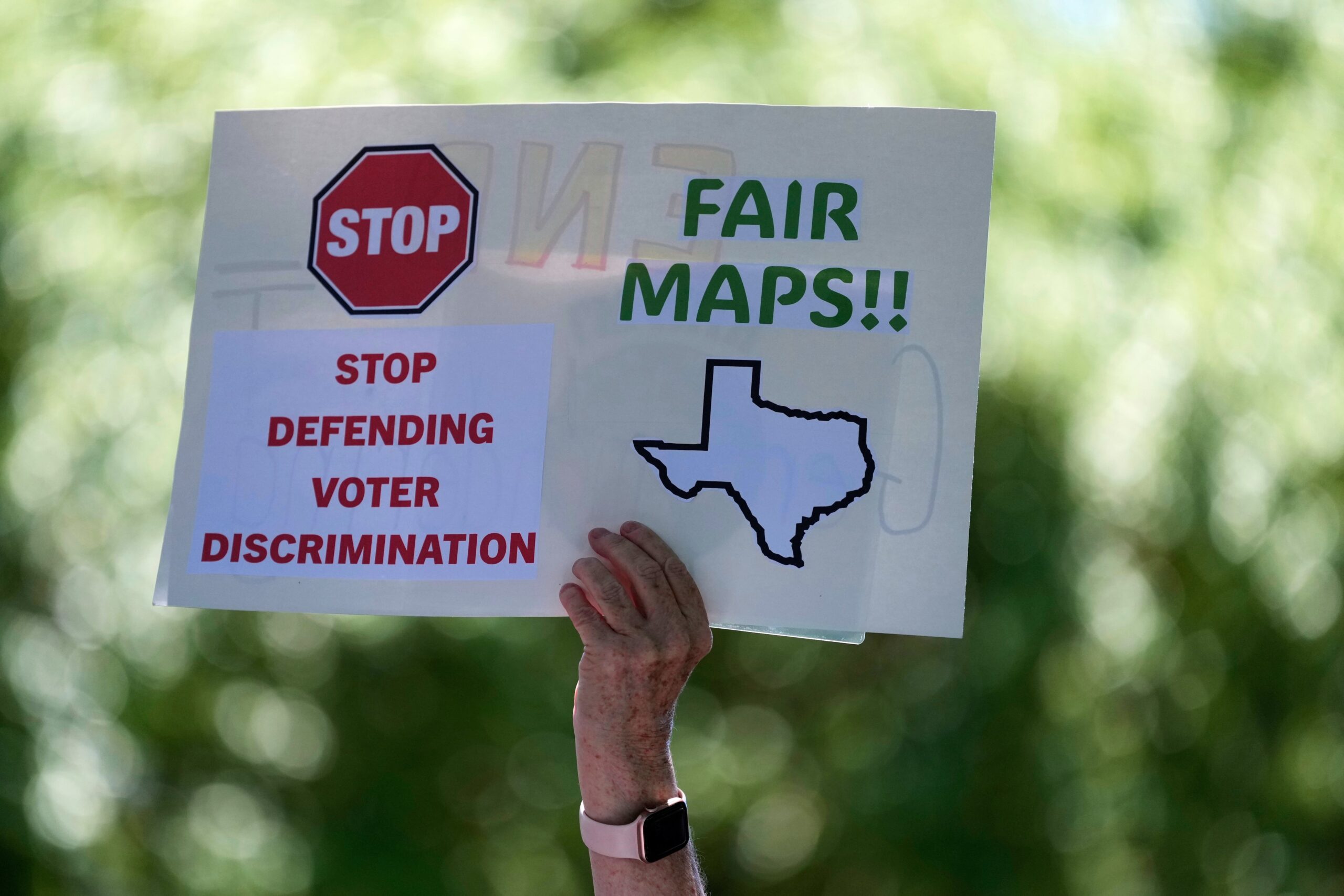WashingtonSome Democrats are reconsidering their adoption of a neutral approach to line-drawing, which now makes it more difficult for their party to retaliate before the midterm elections next year, as Republicans attempt to redregulate legislative districts in red areas to bolster their slim House majority in Washington.
Redistricting, the typically once-every-ten-year process of redrawing congressional and legislative districts to ensure that their populations are fair, is handled by independent commissioners rather than the state legislature in many Democratic-controlled states. Majority parties can take advantage of that procedure to reshape the districts of their legislators, almost guaranteeing their reelection.
Suggested Videos
Districts become more competitive as a result of the commission model’s limitations on parties’ capacity to manipulate the system. Not every redistricting commission was established at the request of Democrats. Additionally, in the few states where it has influence over the process, the party has used line-drawing for its own benefit, just like Republicans. However, a large number of Democratic Party officials have adopted the nonpartisan paradigm, in contrast to Republicans.
Republicans are redrawing the U.S. House map in Texas as President Donald Trump surges to carve out as many as five more winnable districts for the GOP, meaning Democrats have fewer options to match. That might be sufficient to keep Democrats from regaining the majority the following year.
Payback has been threatened by Democrats. At a meeting of Democratic governors in Wisconsin on Friday, some of them expressed a desire to strike back due to the high stakes.
Democrats must take all necessary steps to thwart Republican attempts to redraw congressional districts, according to Wisconsin Governor Tony Evers, who has advocated for his state to establish a nonpartisan redistricting panel.
“You have to do something when you have a gun against your head,” he said.
Despite the lofty rhetoric, Democrats are really powerless.
Redistricting for political advantage is difficult for democratic democracies.
California Governor Gavin Newsom has stated that he will attempt to rework the congressional map of his state in conjunction with the Democratic-controlled Legislature. However, the 2008 ballot initiative establishing an independent redistricting panel would have to be repealed or disregarded. Two years later, voters expanded its power to include congressional districts.
While serving as San Francisco’s mayor at the time, Newsom backed the constitutional change. He changed that stance in response to the Texas redistricting, which is anticipated to be approved by the Legislature next week.
Earlier this month, Newsom stated that we have the option to act pious, observe from a distance, and discuss how the world ought to be, or we can acknowledge the existential essence of this moment.
Another map this decade is prohibited under the state constitution in New York, which also has a commission. Democrats have pushed for reform, but it won’t be possible until 2027 at the latest, and then only with the consent of the electorate.
Democrats have supported independent commissions that are unable to redraw, let alone rig, maps in the middle of the decade in other places, such as Colorado and Washington, when they control both the legislature and the governor’s office.
Democrats say that our democracy’s underpinnings are at risk.
Independent commissioners were tasked with creating only 13 House seats that would have been formed by Republicans, but 95 that would have been produced by Democrats, when the redistricting cycle began in 2021 following the most recent census.
Former Attorney General Eric Holder, who leads the party’s redistricting effort and has frequently urged for a more nonpartisan approach, appeared to support his party’s long-shot attempts to overturn their commissions, which is indicative of the change among Democrats.
Holder stated in a statement last week that we do not temporarily reject prudent, responsive efforts to prevent the underpinnings of our democracy from being permanently undermined.
Democrats have redistributed as brutally as Republicans in states where commissions did not check them. They created a map that gave them a 14-3 lead in the congressional delegation in Illinois. They altered the map in New Mexico to gain control of all three House seats. Despite Trump’s victory in Nevada, they controlled three of the state’s four seats in November.
Democrats are looking for ways to make the most of their advantage, even in places where it is lopsided.
Democratic Del. David Moon, the House Majority Leader of Maryland, stated Friday that if Texas proceeds, he would propose legislation to initiate a redrawing of the congressional borders. Seven of the state’s eight congressional seats are held by Democrats.
We cannot allow one state, particularly a large one, to continuously strive to outdo the others and change the direction of congressional control while the other states do nothing,” he stated.
Advocates claim that commissions encourage equitable representation.
The change among Democrats worries proponents of a nonpartisan strategy. They claim that if the party is not restrained, it will redistrict as aggressively as the GOP, denying voters a say in areas where political leaders will virtually choose the winners beforehand.
Emily Eby French, director of Common Cause’s Texas chapter, stated, “We’re really desperate and we’re looking for any port in a storm.” Although it appears to be a port, this Democratic tit for tat redistricting is not. There are several sirens atop a rocky rock.
Dan Vicu, the group’s director of redistricting, stated that the public strongly dislikes gerrymandering, the practice of exploiting redistricting for partisan advantage: “This is about fair representation for communities.”
Politicians used to be reluctant to have an open discussion about it, but in the divisive climate of today, that has changed. Earlier this month, Trump expressed to reporters his desire to win five more GOP seats in Texas and more in other states that are controlled by Republicans.
Republicans in Ohio are prepared to redraw electoral boundaries after thwarting an attempt to establish an independent redistricting committee, while he has called for fresh maps in GOP-controlled states like Indiana and Missouri.
Democrats disagree on how to react to Texas.
Despite calls for vengeance against Republicans in violation of state laws, Democrats have persisted in calling for a national redistricting panel that would eliminate partisanship from the process, demonstrating the party’s division.
Like Newsom, a potential 2028 presidential candidate, Arizona Senator Ruben Gallego wrote on X that there should be no unilateral disarmament until both sides are abiding by the law. Gallego’s post was made the day before his Democratic colleagues convened to declare they were reintroducing a bill to establish the national commission.
In 2022, despite Democrats controlling both the presidency and Congress, a comparable bill failed to overcome Republican objections. Now that the GOP controls both branches, it has no chance.
Another possible 2028 candidate, Sen. Chris Murphy, stated that the party “should never apologize for being for the right thing” and did not express regret for previous reforms that established independent redistricting boards in Democratic states.
However, he went on to say that we cannot remain inside the box since Republicans are currently acting outside of it.
We must follow the same procedure if they switch districts in the middle of the ten-year cycle, he stated.
However, the party hasn’t adopted that strategy.
Sen. Richard Blumenthal of Connecticut stated that we shouldn’t adopt their strategies. We should ideally be fairly and accurately represented. Republicans’ attempts to sway and misrepresent it do not mean that we should give up on it.
___
Riccardi came from Denver to report. This report was written by Associated Press writers Brian Witte in Annapolis, Maryland; Anthony Izaguirre in Albany, New York; Jaimie Ding in Los Angeles; and Scott Bauer in Madison, Wisconsin.








